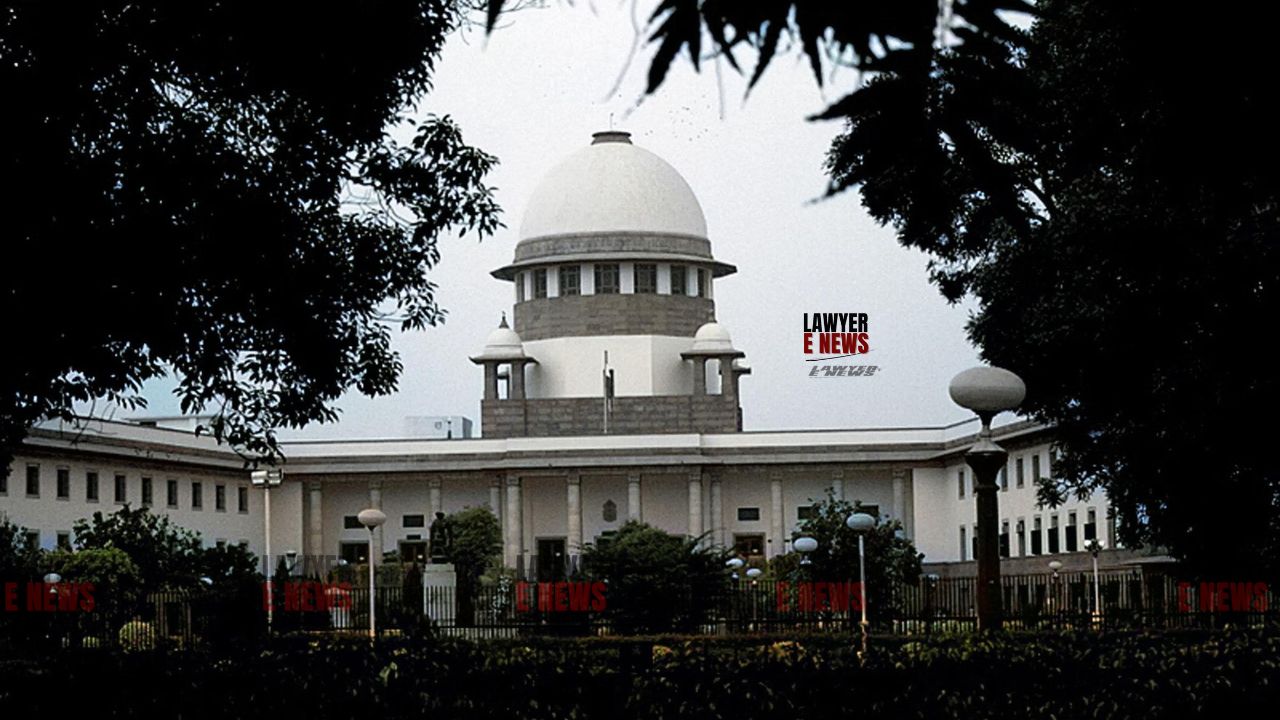-
by Admin
15 February 2026 5:35 AM



Supreme Court of India delivered a significant ruling in the case of K.C. Kaushik & Ors. v. State of Haryana & Ors., concerning the entitlement of interest on delayed payment of revised pension for retired lecturers and principals of private aided colleges in Haryana. The appellants, who retired before January 1, 2006, sought parity with government college retirees in terms of pension and interest on delayed payment. The Court, while upholding their entitlement to the revised pension, ruled that they were not entitled to interest on delayed payments, as they had waited for earlier litigants to secure favorable judgments before making their claims.
The appellants, who were retired lecturers and principals of government-aided private colleges in Haryana, sought revised pensions under Rule 6 of the Haryana Civil Services (Revised Pension) Part I Rules, 2009. The appellants retired before January 1, 2006, and claimed parity with their counterparts in government colleges who were granted a revised pension. While the Haryana government eventually revised their pensions, the appellants sought interest on the delayed payment of arrears.
During the writ proceedings, an assistant representing the Haryana government orally assured the Court that the government would pay interest on the delayed pension payments. Relying on this oral statement, the appellants withdrew their petitions. However, the Haryana government later disputed the entitlement to interest, and the case escalated to the Supreme Court after the Punjab and Haryana High Court ruled against awarding interest.
1. Entitlement to Revised Pension
The appellants argued that they were entitled to the same pension benefits as their counterparts in government colleges under Rule 6 of the Haryana Civil Services (Revised Pension) Part I Rules, 2009. The Supreme Court agreed, affirming that the appellants were indeed entitled to revised pensions on par with government college employees. The appellants had been paid the revised pension arrears for the period starting January 1, 2006, in 2017-2018.
2. Claim for Interest on Delayed Payment
The central issue in the appeal was whether the appellants were entitled to interest on the delayed payment of revised pension. The appellants argued that, since their pensions had been delayed, they were entitled to interest. They further claimed that the Haryana government’s oral commitment in court to pay interest on delayed payments should bind the government.
However, the Court held that the appellants were not entitled to interest, primarily because they were "fence-sitters" who had waited for earlier litigants to secure favorable judgments before making their own claims. The Court observed that “the appellants waited till the rights of the retired employees/lecturers of the Government Colleges were crystallized and only then initiated their claims.” This, the Court ruled, did not justify an entitlement to interest.
The Court agreed with the High Court’s assessment that the appellants could not claim interest on delayed payments because they had not actively pursued their claims but had instead waited for the outcome of earlier litigations. In this context, the Court noted, “They cannot be placed at a better footing than the original litigants, who never got interest.”
The Supreme Court explained that the entitlement to revised pensions was crystallized for the government college retirees through earlier litigations in 2010, which were finalized in 2014. The appellants, however, waited until 2015 to initiate their own claims. The Court, thus, ruled that the appellants were not entitled to any interest for the delay in receiving their revised pensions.
Oral Instructions in Judicial Proceedings
The Court emphasized the importance of written instructions in judicial proceedings, particularly when government counsel is involved. The appellants had relied on an oral assurance made by an assistant during the writ proceedings that the government would pay interest on delayed pension payments. However, the Court held that oral instructions were insufficient to bind the government, particularly in the absence of written documentation.
The Court expressed concern about the reliance on oral instructions in such matters, stating: “Relying on oral instructions may lead to factual errors, misunderstanding, or misrepresentation.” The judgment stressed that future government representations in court should be substantiated by written instructions to ensure clarity and accountability.
The Supreme Court dismissed the appeals, holding that the appellants were not entitled to interest on the delayed payment of their revised pensions. The Court clarified that although the appellants were entitled to revised pensions under Rule 6 of the Haryana Civil Services (Revised Pension) Part I Rules, 2009, their delayed claims, made after earlier litigations had succeeded, precluded them from claiming interest. The Court also emphasized the importance of relying on written instructions in judicial proceedings, warning that future misrepresentations could result in penalties.
Key Takeaways from the Judgment
No Interest for Fence-Sitters: The Supreme Court ruled that litigants who wait for others to secure favorable judgments before pursuing their own claims are not entitled to interest on delayed payments. This judgment reinforces the importance of timely and proactive litigation to preserve rights.
Importance of Written Instructions: The Court stressed that oral assurances, especially by government representatives in court, cannot be relied upon unless they are backed by written instructions. This ensures that government officials are held accountable for their representations in court.
Revised Pension Rights Affirmed: While the appellants were denied interest, the Court confirmed their right to revised pensions under the Haryana Civil Services (Revised Pension) Part I Rules, 2009, ensuring parity with government college retirees.
Date of Decision: October 21, 2024
K.C. Kaushik & Ors. v. State of Haryana & Ors.
